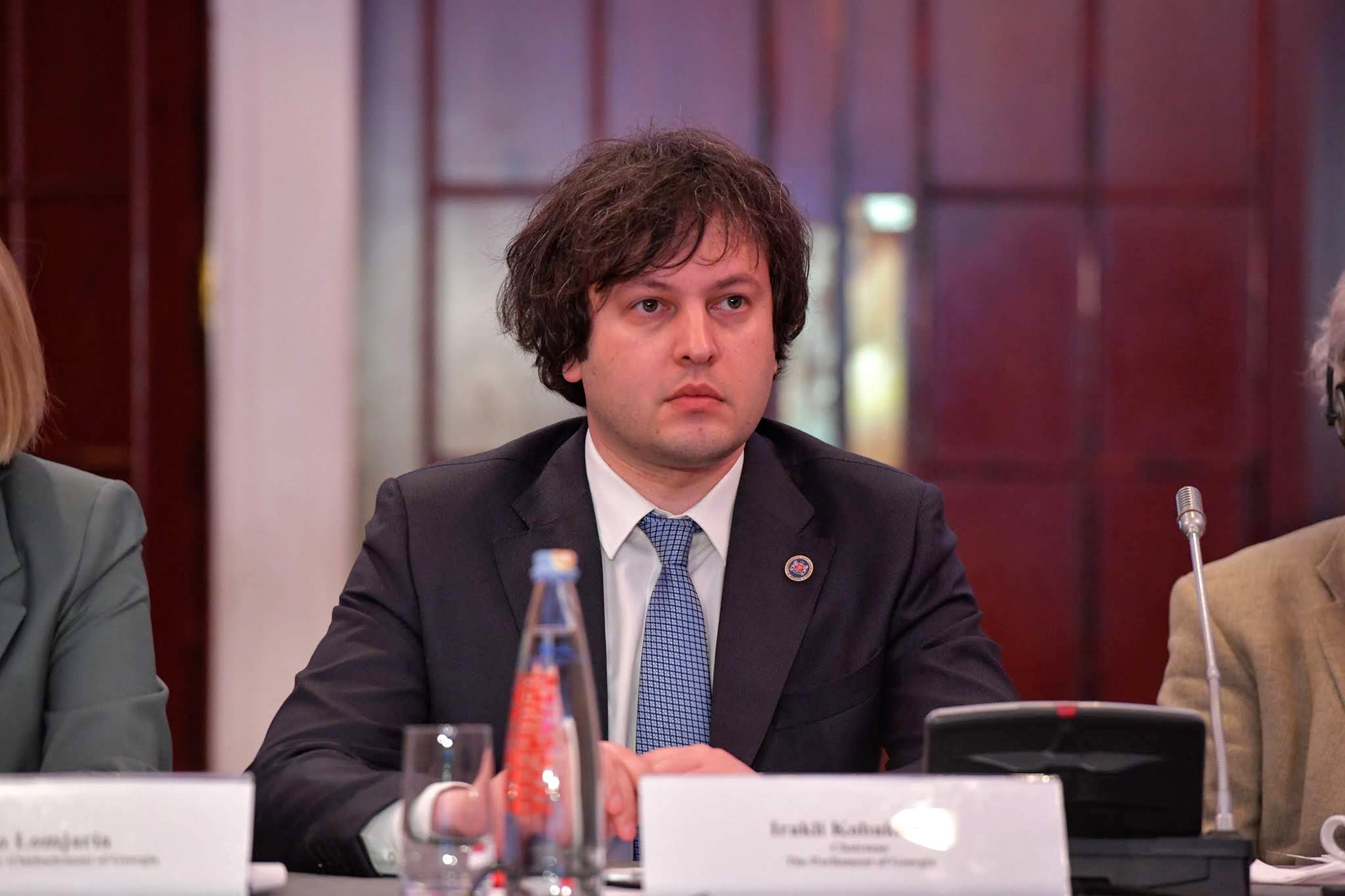
The Chair of Georgian Parliament, Irakli Kobakhidze has resigned from his post following the mass anti-government demonstration yesterday.
Thousands rallied in front of the parliament building in Tbilisi on 20 June condemning the ruling Georgian Dream party for letting Russian MP Sergey Gavrilov address Georgian MPs in Russian from the speaker’s tribune earlier that day.
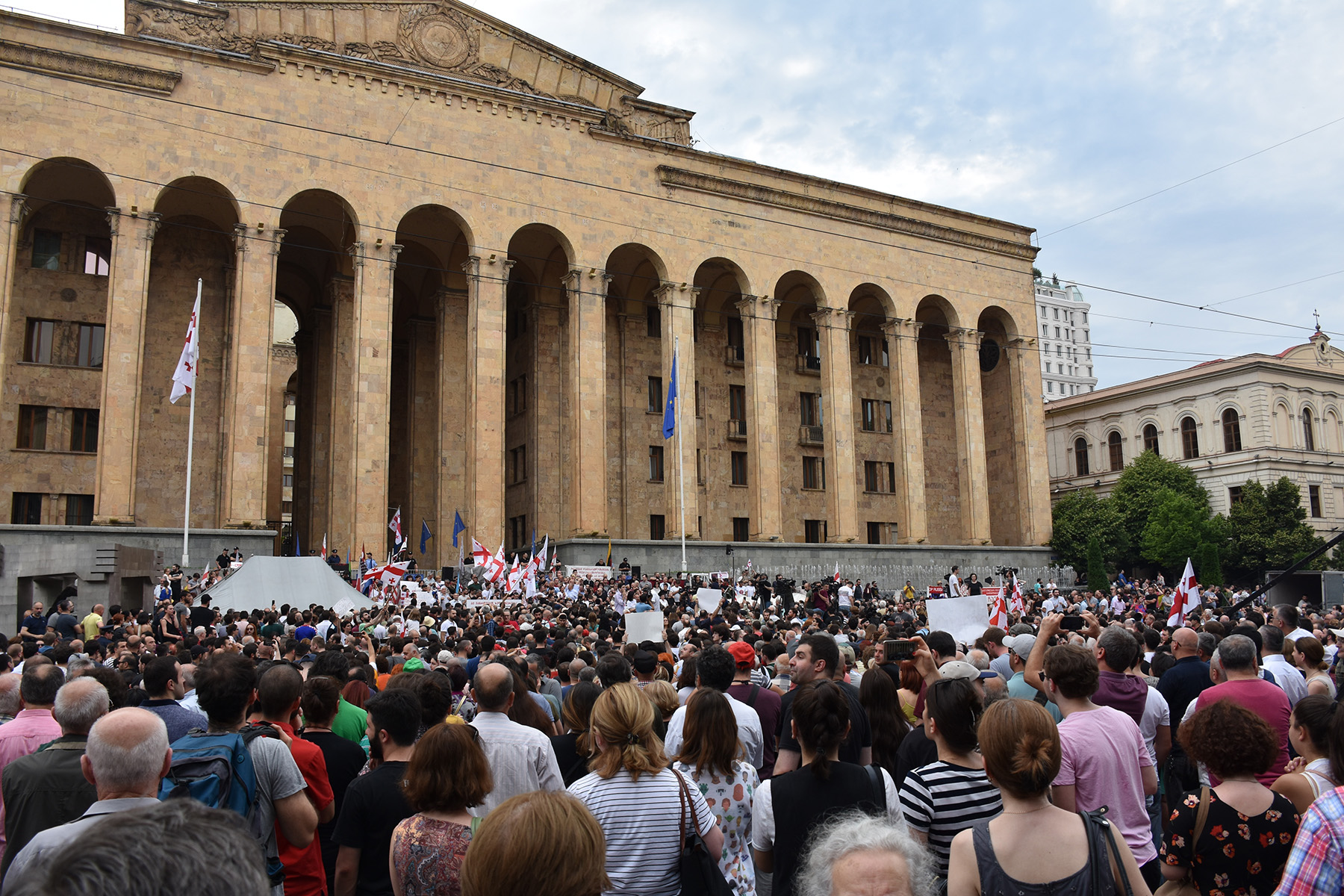
Police used rubber bullets, tear gas, and water cannons against the protesters, some of whom continued to clash with riot police until dawn.
The violence escalated after a group of protesters tried to storm the parliament building after the opposition United National Movement party called for them to ‘peacefully occupy’ the building until their demands were met.
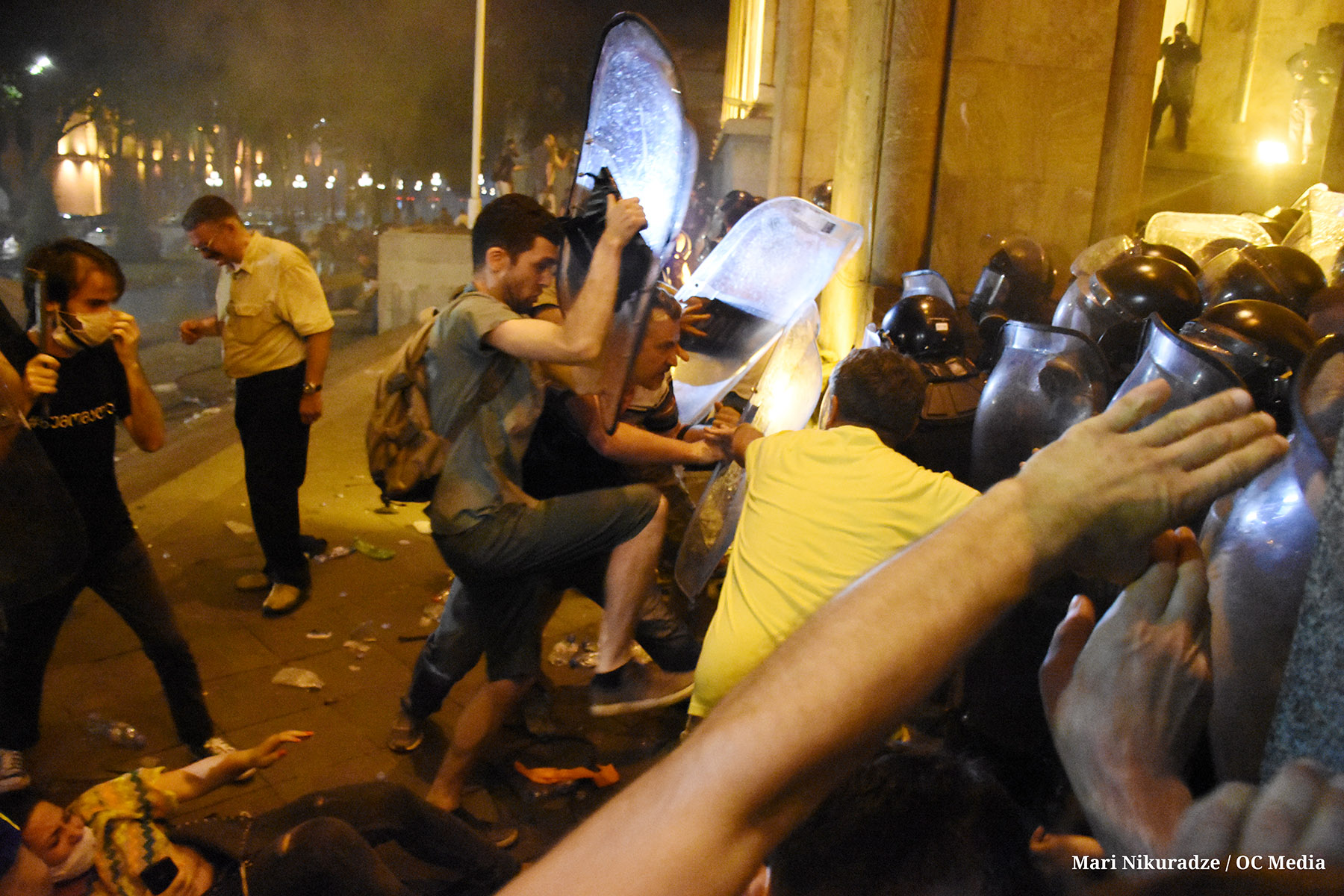
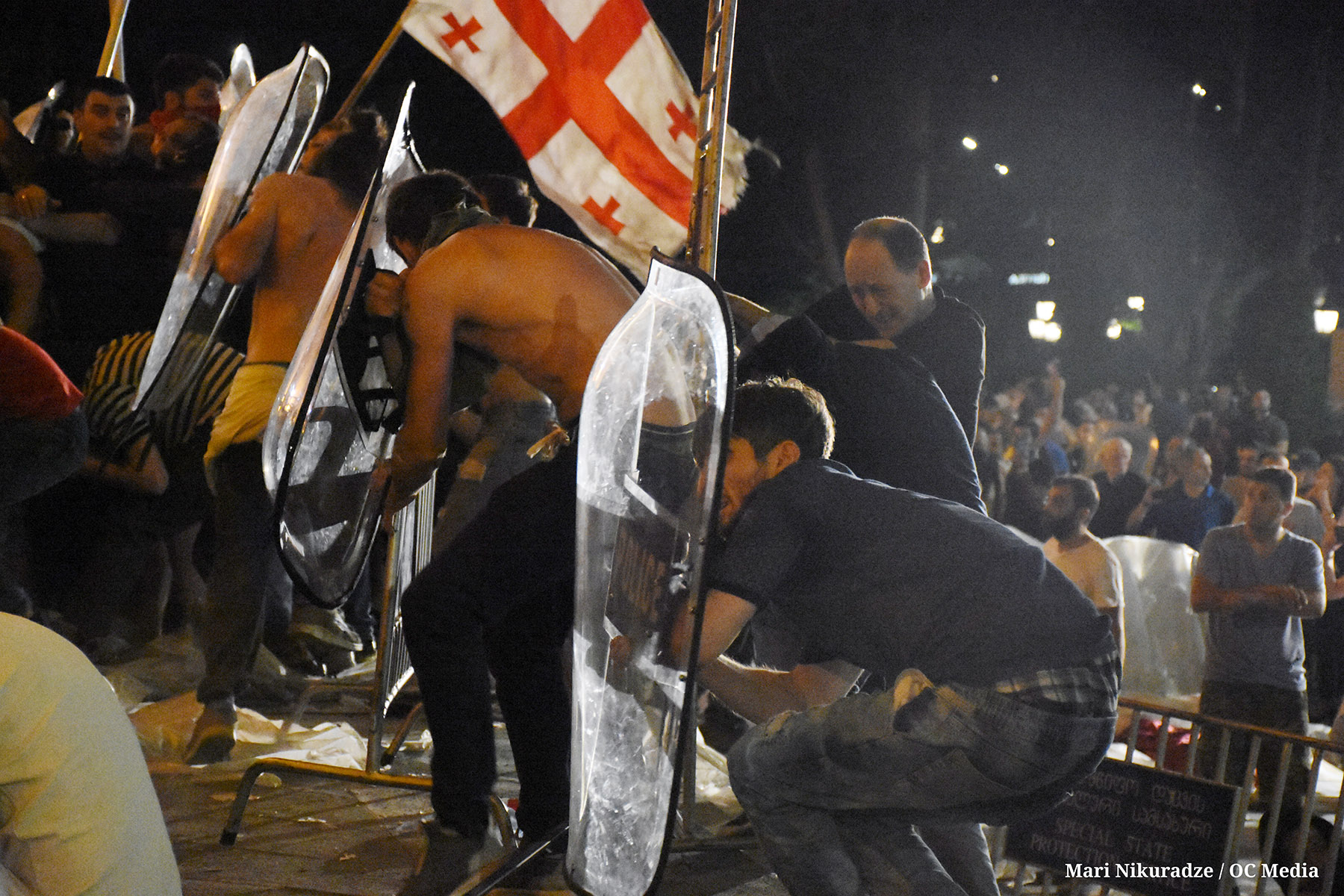
Deputy Health Minister Zaza Bokhua announced on Friday afternoon that 240 people had to be hospitalised during the clashes, including 80 police officers.
Several people lost an eye after being hit by rubber bullets and one person remains in life-threatening condition after undergoing brain surgery.
[Read more on OC Media: Thousands clash with police as protesters try to storm Georgian Parliament].
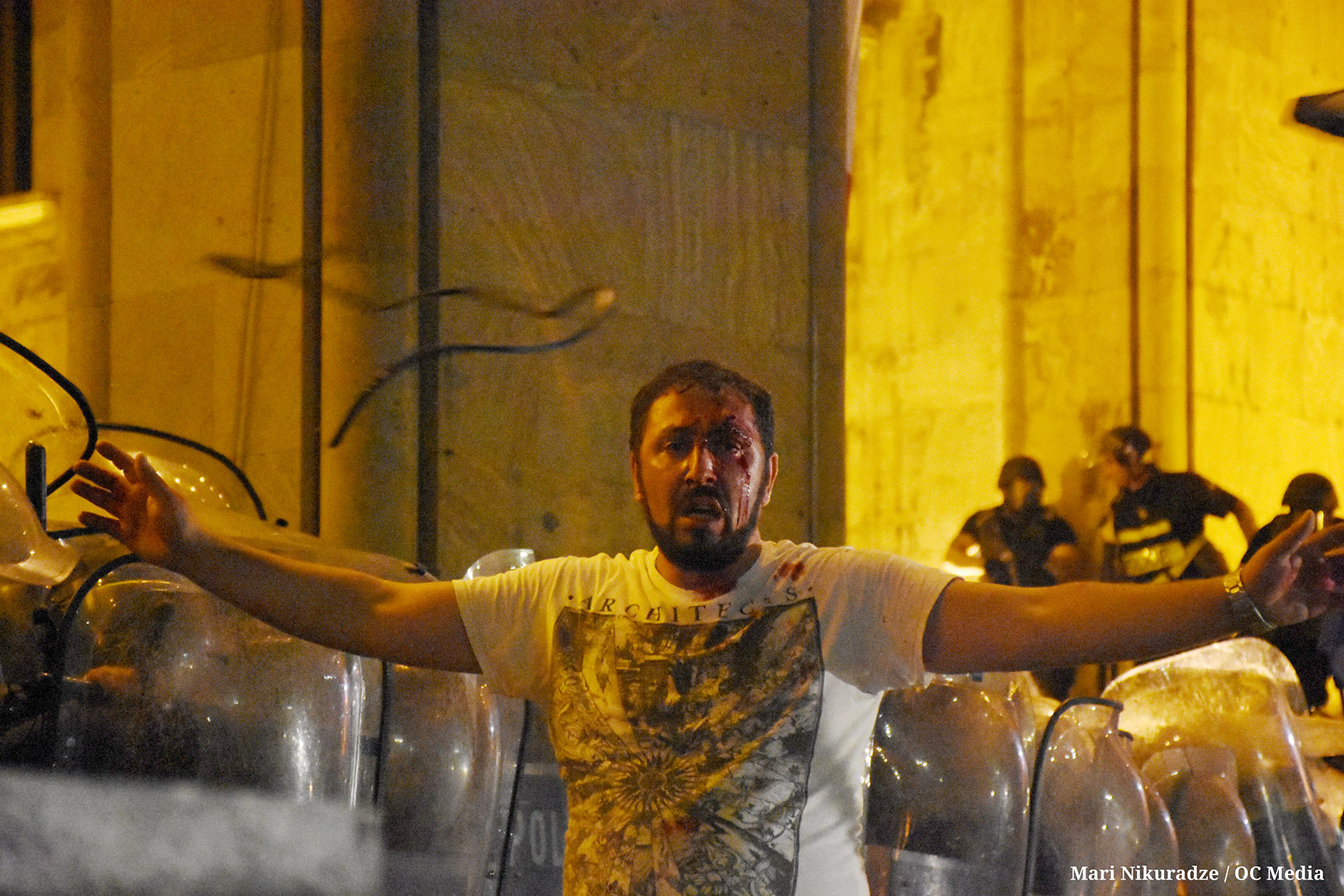
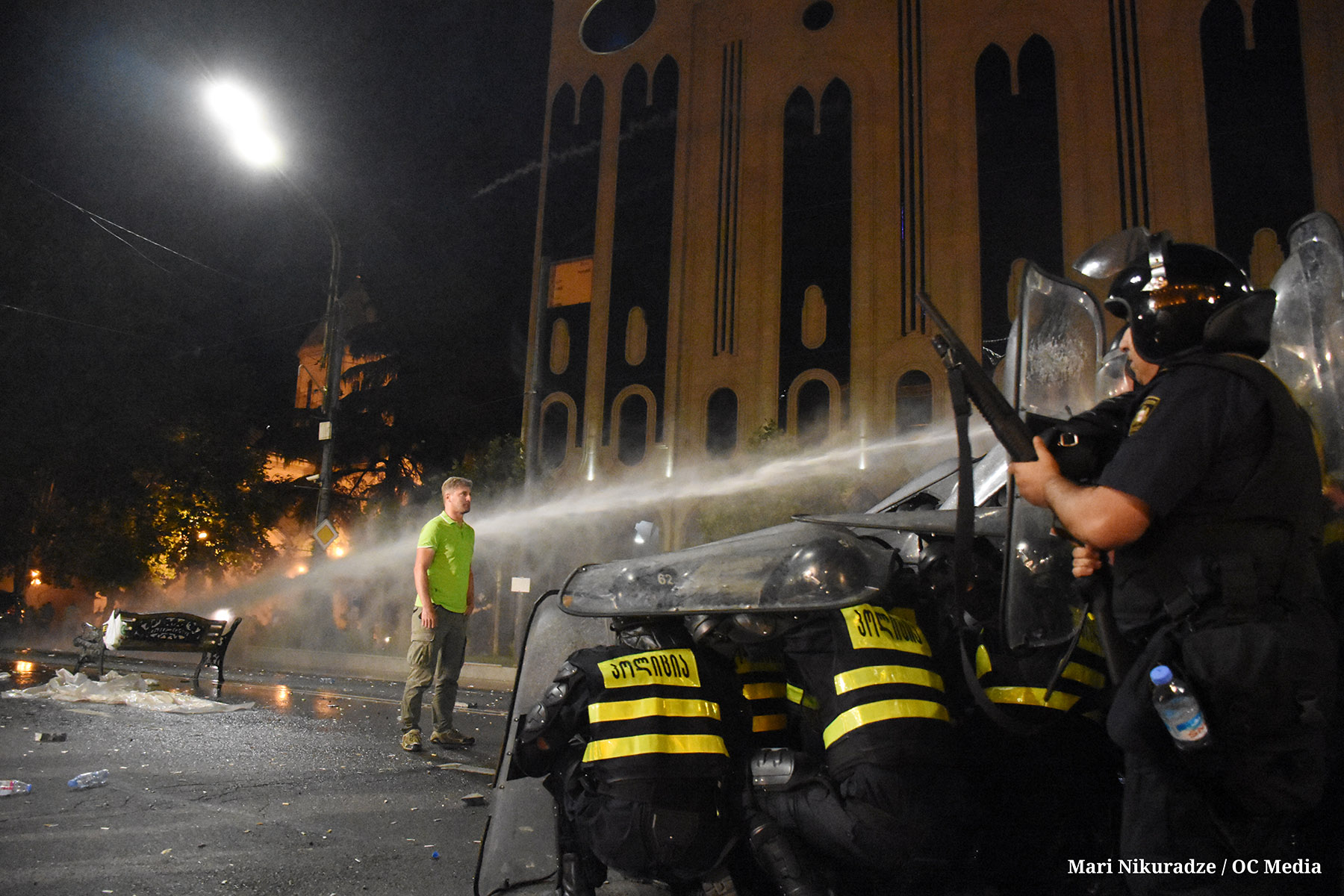
Kobakhidze’s resignation was among several of the main demands voiced by opposition parties the United National Movement and European Georgia. The opposition also demanded the sacking of Interior Minister Giorgi Gakharia and snap parliamentary elections under a proportional system, instead of the current mixed proportional-majoritarian one.
The announcement of the speaker’s resignation came from the ruling Georgian Dream Party’s General Secretary, Kakha Kaladze, who is also the Mayor of Tbilisi.
In a statement, Georgian Dream underlined that Kobakhidze’s resignation was ‘another sign’ of their pursuit of public accountability since coming to power in 2012 and ‘not accepting the agenda of irresponsible, destructive forces’.
‘Everyone agrees that the use of force was of the utmost necessity and was completely legitimate […] Certainly, we will react to individual cases of excessive force if it was used [by police]’, Kaladze read out the party statement with other leaders standing behind him.
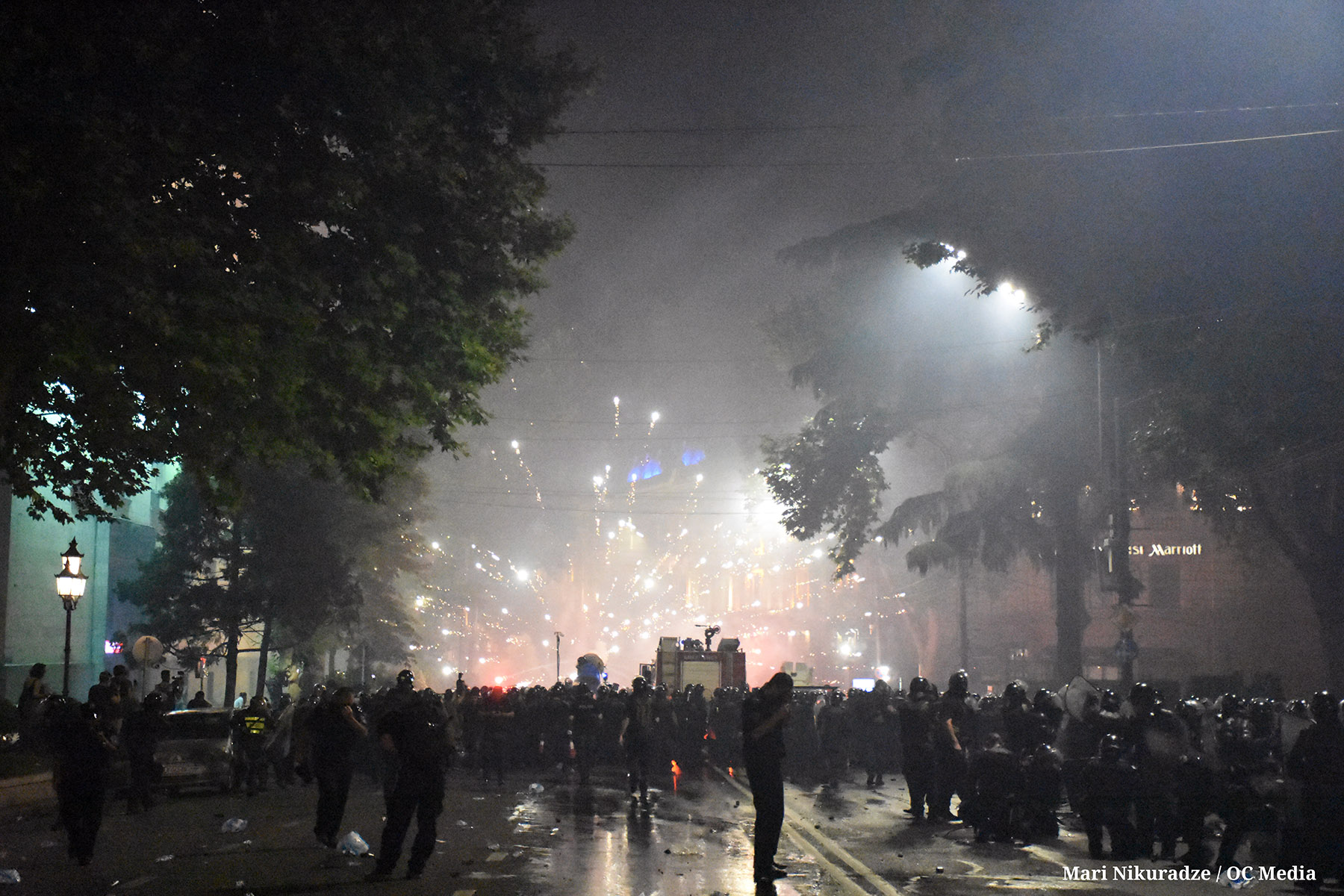
Both Irakli Kobakhidze and party chair Bidzina Ivanishvili were absent on the stage.
MP Zakaria Kutsnashvili, whom the party identified as responsible for overseeing the participation of Gavrilov and other Russian delegates in the 26th General Inter-Parliamentary Assembly of Orthodoxy (IAO), announced he would step down as a member of parliament.
Parliament must elect a new speaker within 14 days. In the meantime, Kobakhidze’s first deputy Tamar Chugoshvili will act as an interim speaker.
On Friday evening, thousands of protesters again gathered outside parliament.
‘Difficult to see’
Kobakhidze, who made a speech at the opening session of the Inter-Parliamentary Assembly of Orthodoxy on 19 June, was quick to condemn the decision to seat Russian MP Sergey Gavrilov in his chair after the scandal broke the next day.
He said that it was ‘difficult’ for him to see an ‘official representative of an occupier country sitting in Georgia’s parliamentary speaker’s chair’.
Kobakhidze is also Georgian Dream’s Executive Secretary and one of the trusted lawyers of party Chair and billionaire Bidzina Ivanishvili.
In late 2018, Kobakhidze led the charge to appoint several controversial judges to the Supreme Court in close cooperation with the High Council of Justice (HCOJ), which caused cracks in the ruling party.
Georgian Dream veteran Eka Beselia, initially Ivanishvili’s lawyer, stepped down as parliament’s legal committee Chair in early January, accusing Kobakhidze of colluding with a ‘clan’ in the HCOJ who she said were in control of the judiciary.
Beselia and several allies, who eventually left the ruling party, characterised Kobakhidze as too incompetent and immature to run the party for Ivanishvili.
Kobakhidze also oversaw the 2017 constitutional amendments that postponed the transition of Georgia’s mixed electoral system to fully proportional until 2024.
In an April 2018 public opinion survey by the International Republican Institute, 61% viewed Kobakhize unfavourably, with only 26% viewing him favourably.
Georgian Dream said they would put forward Archil Talakvadze, the parliamentary majority leader, for the new Speaker.
Post-riot reactions
On 21 June, the Interior Ministry said they had detained 305 people during and after the clashes.
Speaking to journalists, Interior Minister Giorgi Gakharia scolded opposition leaders for ‘vanishing’ from the protest after 22:00 and leaving young supporters facing the police alone.
The Charter of Journalistic Ethics, an advocacy group, organised a rally in front of the ministry in Tbilisi demanding the prosecution of police officers that shot rubber bullets at ‘identifiable’ members of the press and obstructed their professional activities during the protest.
Georgian journalists hold a demonstration at the Interior Ministry office to protest violence against journalist during #TbilisiClash https://t.co/id0jyglUr0
— OC Media (@OCMediaorg) June 21, 2019
They said over 31 journalists were hurt.
In a statement on 21 June, Georgian President Salome Zurabishvili called the format of the IAO session on 20 June ‘gravely offensive’ to the public, but also urged Georgians not to fall for ‘provocations from destructive forces’.
The Georgian Orthodox Church also weighed in on Friday, with a sympathetic statement towards protesters’ ‘just frustration’ over the ‘government’s mistake’.
Nevertheless, they castigated the rally’s organisers for making ‘unreasonable calls’ to occupy the parliament building and warned against civil unrest.
Russian President Vladimir Putin’s Press Secretary Dmitry Peskov called the events in Tbilisi ‘Russophobic’.
‘Everything that happened in Georgia yesterday is nothing more than a Russophobic provocation. It can’t but cause our utmost concern — the fact that there were aggressive manifestations against Russian citizens’, Peskov said.
‘Let’s not forget that Georgia is a country regularly visited by a fairly large number of tourists from Russia. It’s an extremely serious issue’, he added.
Mikhail Degtyarev, Chair of the Russian State Duma Committee on Tourism, urged Russians to boycott Georgia’s resorts and imported goods in protest.
Both the US and British embassies to Georgia commented on the developments while the German ambassador, Hubert Knirsch visited the scene on the night of 20 June.
Knirsch called on protesters and police to stay calm and peaceful.
In their statement, the US embassy said they were ‘following very closely events at the Georgian Parliament in Tbilisi this evening. We recognise the hurt that many people feel today. We urge all sides to remain calm, show restraint, and act within the framework of the Constitution at all times.’




 21 June 2019
21 June 2019


